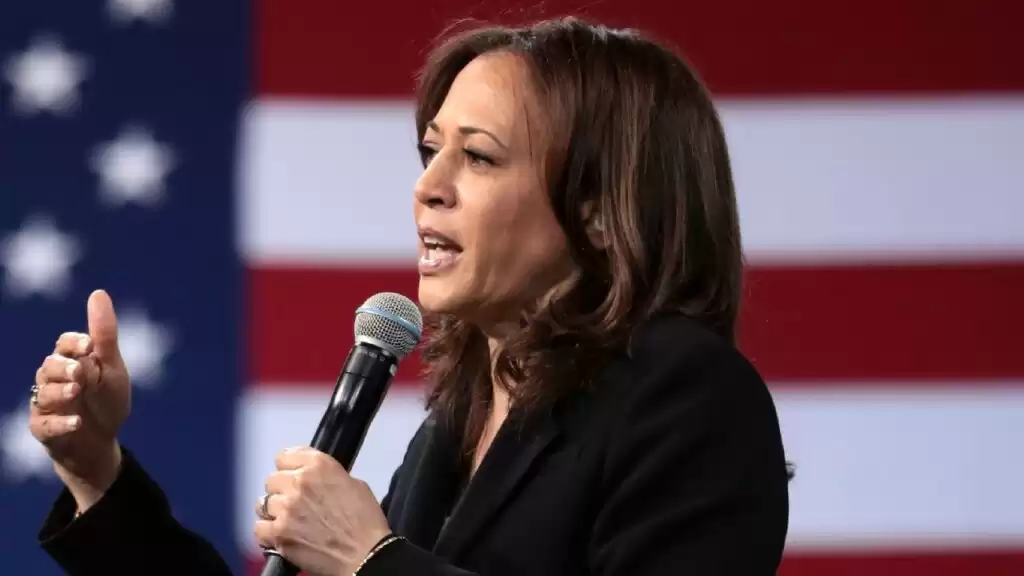Joe Biden Unable to Substitue Kamala Harris—No Exceptions.
Some in Washington fear that President Biden is "shackled" to Vice President Kamala Harris and worry about her potential as president if Biden doesn't finish his term. Replacing Harris would be difficult due to her identity as the first female, Black, and Asian-American VP. Changing the VP would also raise questions about Biden's judgment. The Indian-American community, which could be crucial in a future election, might also be turned off if Harris is replaced. One potential solution could be for Harris to be appointed to fill a Senate vacancy in California, allowing Biden to choose a new running mate. However, such a move would require political maneuvering that Biden and Harris may not be capable of executing successfully.
During the First World War, there was a prevalent belief within the German government that their alliance with Austria-Hungary was burdensome and limiting. They saw themselves as being "shackled to a corpse," and some even considered the possibility of annexing the entire Austrian Empire. If Germany had emerged victorious in the war, this annexation may have become a reality.
Today, there are individuals in Washington who may feel a similar sentiment towards Vice President Kamala Harris. They view her as a political burden, a "dead weight" that President Joe Biden must carry. There is concern that if Biden is unable to complete a second term, whether due to death or other reasons, Harris is not the right person to assume the presidency.
While the media may not express this sentiment as directly, even Reuters has suggested that Biden and Harris are "tethered together." The issue at hand is that Biden cannot simply replace Harris as his vice president.
It is worth noting that no sitting president has chosen a new running mate since Gerald Ford replaced Vice President Nelson Rockefeller with Senator Bob Dole in 1976. Ford, who became president after Richard Nixon's resignation, was compelled to select a candidate who would appeal to the more conservative faction of the Republican Party. Ford later admitted regret over this decision, but it was inconsequential as he was defeated by Jimmy Carter in the general election.
In the case of Harris, there are several factors that make it even more challenging for Biden to make a switch. She is the first female, Black, and Asian-American vice president in U.S. history. Replacing her would send a message that Biden is willing to discard his first Black woman vice president, which could alienate Black voters and women. Biden needs Harris to maintain their support.
In other words, if Biden were to choose another Black candidate like Senator Corey Booker, it could be seen as "anti-woman." Similarly, selecting Representative Alexandria Ocasio-Cortez or Governor Gretchen Whitmer could be perceived as "anti-Black." Even replacing Harris with figures like Oprah Winfrey or Michelle Obama could imply a lack of confidence in a Black woman and the need to try again.
Changing his vice president would also raise doubts about Biden's past judgment. If he can be wrong about Harris, what about his appointment of Ketanji Brown Jackson to the Supreme Court? Biden made it clear that his nominee would be a woman of color. If he can't make the right decision on his vice president, can he be trusted in other important appointments?
Furthermore, while the Indian-American community may not be a decisive voting bloc, their support could be crucial in a potential rematch between Biden and Donald Trump. Trump could select former South Carolina Governor Nikki Haley, who is of Indian descent, and present her as a bridge to the future. Losing the support of Indian donors could have financial implications for Biden's campaign.
Part of the challenge lies in the fact that in modern times, the presidential candidate typically chooses their running mate. This wasn't always the case, but it explains why the last elected vice president to be dropped from the ticket was Henry A. Wallace in 1944. Wallace's bid for a second term was rejected at the 1944 Democratic convention when President Franklin Delano Roosevelt refused to endorse him. Instead, Democrats opted for Harry H. Truman, who eventually became president after FDR's death.
There is a hypothetical scenario in which Harris could be replaced, inspired by the Netflix series House of Cards. In the show, the fictional Vice President Jim Matthews resigns to run for governor, leaving a vacancy in the vice presidency. In real life, California Senator Dianne Feinstein could choose to step down before her term ends in 2025, allowing Governor Gavin Newsom to appoint Harris, who previously served as a senator in California, to fill the vacancy. Harris could then announce her intention to seek reelection in 2024, while Biden would be free to select a new running mate.
However, executing such a power play would require the cunning and manipulation of a character like Frank Underwood from House of Cards. Given the complexities and potential pitfalls involved, it is unlikely that Biden and Harris could successfully navigate such a maneuver. Therefore, the country is likely stuck with Vice President Harris for the foreseeable future.












Comments on Joe Biden Unable to Substitue Kamala Harris—No Exceptions.